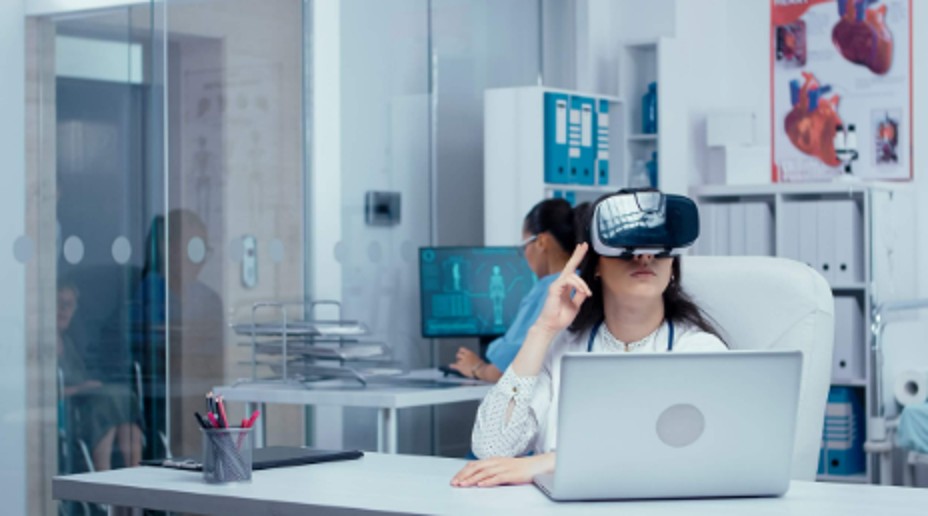HEALTH
How Virtual Reality is Revolutionizing Healthcare and Education

Virtual reality (VR) is an emerging technology that is just beginning to change some industries, including healthcare. VR creates an immersive, three-dimensional environment using headsets and specialized software. In healthcare, VR is being used in innovative ways to improve patient care, virtual medical education, and access to mental health services.
Pain Management
One of the most promising uses of VR in healthcare is for pain management. Studies have found that immersive VR environments can distract patients from pain and reduce their need for pain medication following surgery or during medical procedures. By immersing patients in relaxing virtual environments like beaches or forests, VR can make painful medical treatments more tolerable. This improves patient satisfaction and reduces reliance on prescription opioids.
Better Patient Satisfaction
VR is also being used to reduce patient anxiety and improve satisfaction. Hospital stays and medical procedures can be stressful, frightening experiences. But VR programs allow patients to relax and be distracted before and during treatment. Several hospitals have implemented VR programs to provide calming experiences for patients undergoing chemotherapy, surgery, or MRI scans. Patients report feeling more relaxed and satisfied with these VR pain and anxiety management programs.
Effective, Accessible Mental Health Care
VR makes mental health treatment more accessible and effective. VR exposure therapy allows patients to gradually confront fears and anxieties in safe, controlled virtual environments. This allows for effective exposure therapy treatment even when the real-world setting is unavailable. Patients with PTSD, phobias, and other mental health conditions benefit from VR therapy. Additionally, VR makes mental healthcare more accessible in remote areas through telemental health services.
Virtual Reality Being Used in Healthcare Settings
Hospitals, medical schools, and other healthcare providers are finding more uses for VR every day. VR surgical simulation develops surgeon skills before they enter the OR. VR tours prepare patients for procedures by walking them through detailed virtual hospitals. VR training improves first responders’ lifesaving skills through immersive emergency simulations. As the technology improves, VR will likely become a standard part of medical education, surgical training, patient education, and mental healthcare.
Virtual Medical Education
VR technology is enhancing medical education. It allows trainees to develop surgical skills, patient interview abilities, and diagnostic capabilities in extensive simulations before treating real patients. VR provides unlimited opportunities to practice complex procedures or high-risk scenarios in realistic virtual settings. This results in more prepared, skilled medical graduates entering the healthcare workforce.
Learn More About Virtual Medical Education and Other Ways Virtual Reality is Improving Medicine
VR is transforming modern healthcare in exciting ways. This powerful technology is improving patient experiences, enhancing provider skills, and making care more accessible. Although more research is still needed, VR will likely become an integral part of medicine in the near future. Keep learning more about virtual medical education and the ways VR is changing this field to stay up-to-date as this technology evolves.










